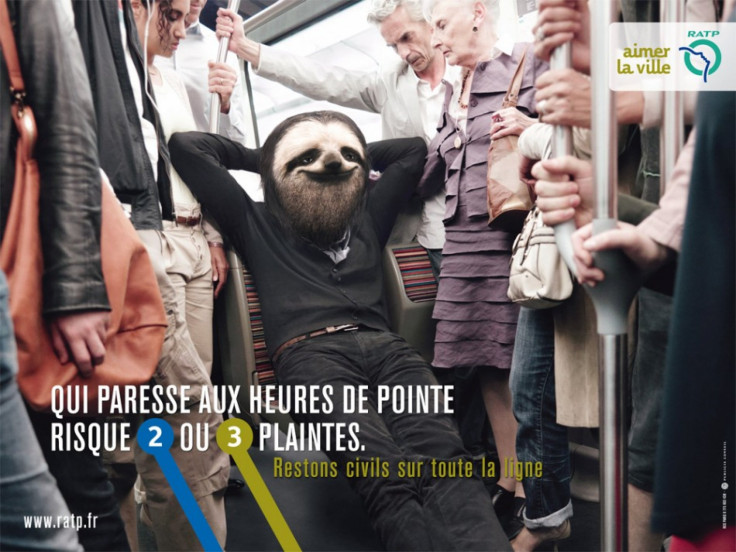French Admit They’re Rude, Want To Change

Visitors from abroad: You are not the only ones annoyed by snooty shopkeepers and aggressive commuters in Paris. Long stereotyped as ill-mannered, a new survey shows that the French, too, admit they are rude and slothful. They're exasperated, they've said, and ready for a change.
The Paris transport authority Régie Autonome des Transports Parisiens (RATP) conducted the recent survey which found that 97 percent of bus and underground passengers had witnessed rude behavior and acknowledged the longstanding belief that the French lack certain etiquette standards in social interactions.
Another recent survey by French polling institute Ipsos found similar complaints, with 60 percent of those surveyed quoting "lack of manners" as their No. 1 source of stress.
RATP hopes to combat poor etiquette with its new "Staying civil right down the line" campaign. It's an attempt to shame ill-mannered commuters into changing their ways by raising awareness of bad habits on public transport. The campaign includes a series of ads, displayed throughout the public transport system, that draw attention to commuters' biggest pet peeves, including loud cell phone conversations, jumping on trains before other passengers have exited and lacking basic manners.
At the heart of the "civility campaign" is a collection of "rude" animals tormenting "civilized" humans. One ad, for example, shows a buffalo barging onto a crowded train while another shows a sloth taking up more than its fair share of space.
"We chose to use a deliberately offbeat and humoristic tone, with slogans formulated as maxims," the company said in a statement introducing the new ads. "The campaign highlights the absurdity of behaving uncivilly on public transport, bringing to the fore the idea that each act of incivility is based on an absurd logic that not only harms the group, but also harms the individual acting out of line."
RATP also created a website where frustrated commuters can write their own captions for uncivil actions.
The main incivilities the organization hopes to address are "lack of cleanliness, noise, pushing and shoving, fraud and lack of courtesy." It hopes to do so by raising awareness and creating a dialogue and discussion.
"Our behavior is more and more geared towards cleanliness and hygiene -- like spitting on the ground or smoking in a restaurant, now both very frowned upon -- and less about common courtesies like simply being polite and nice to each other," sociologist Julien Damon, who helped with the RATP survey, told French news magazine Marianne.
According to a follow-up survey, 63 percent of respondents who admitted to poor etiquette said the new ads made them think twice about their own attitude on public transport. Whether they will behave better in the future, however, remains to be seen.
READ ALSO: The Rudest (And Friendliest) Nations For Travelers
© Copyright IBTimes 2024. All rights reserved.












